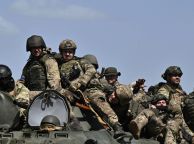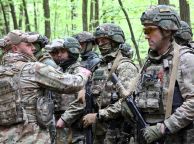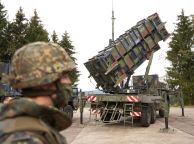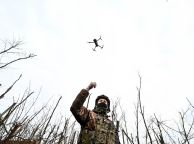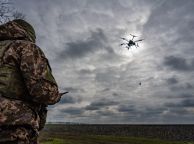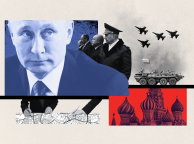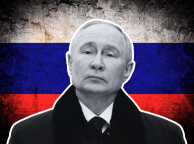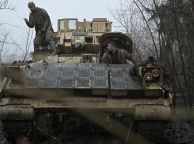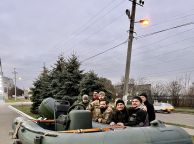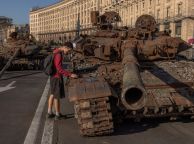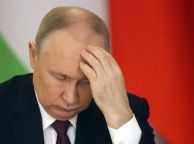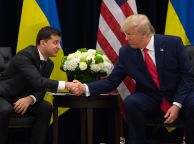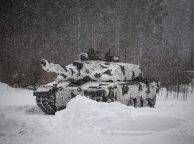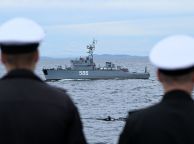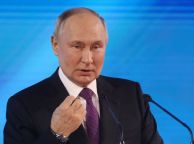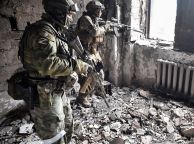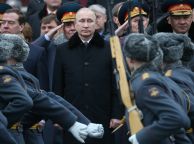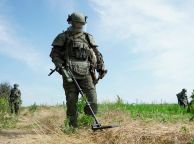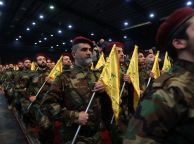Russia's full-scale invasion of Ukraine in February 2022 revealed a number of "problems" within the Russian army, President Vladimir Putin has said.
Putin made the remarks on Tuesday during an expanded meeting of the Russian Defense Ministry Board at the National Defense Control Center in Moscow, as he outlined that the country must modernize its web of satellites.
Experts have said that Russia's Soviet-era satellite network, Glosnass, has shortcomings that are impacting the country's war effort in Ukraine, resulting in inaccuracies in their advanced weaponry.
"[The war in Ukraine] also revealed problems," the Russian president said.
"We need to seriously rebuild the communication system, use modern means of reconnaissance, targeting and counter-battery warfare much more effectively, and increase the capabilities of our satellite group, not only in the area of [the war in Ukraine] but also at the global level."
Newsweek has contacted Russia's Defense Ministry via email for comment.
Putin also said Russia needs to ramp up domestic production and supply of high-precision projectiles and various types of drones, as well as improve its air defense systems.
"I know that changes are happening, they are happening quite quickly, I will tell you more about it. But we still need to work on it, we need to consolidate this trend. The work of air defense also needs to be improved," Putin said.
"Our well-known Pantsir, Buki, S-300, S-400 systems work flawlessly. They are the best in the world, without any exaggeration," he said.
The Russian president told officials that arms supplies to his troops fighting in Ukraine had tripled this year, compared to 2022.
The revelation comes months after he said his forces lacked sufficient modern weapons for his ongoing invasion of the neighboring country.
Speaking during a meeting of military bloggers in the Kremlin in June, Putin said that during the war, "it has become clear there are shortages of many things—precision-guided munitions, communications equipment, aircraft, drones and so on."
"We have them, but unfortunately we don't have enough of them," he said.
Drones, "modern anti-tank weapons are needed, and modern tanks are needed," Putin added.
Ukrainian officials regularly provide updates on Russian military losses. On Thursday the general staff of the armed forces of Ukraine said on Facebook that so far, Russia has lost 5,828 tanks, 10,825 armored personnel vehicles, 8,226 artillery systems, 932 multiple rocket launchers, 611 air defense systems, 324 aircraft, 6,342 operational-tactical UAVs, 22 ships/boats, 1 submarine, 10,919 vehicles and tankers, and 324 helicopters.
